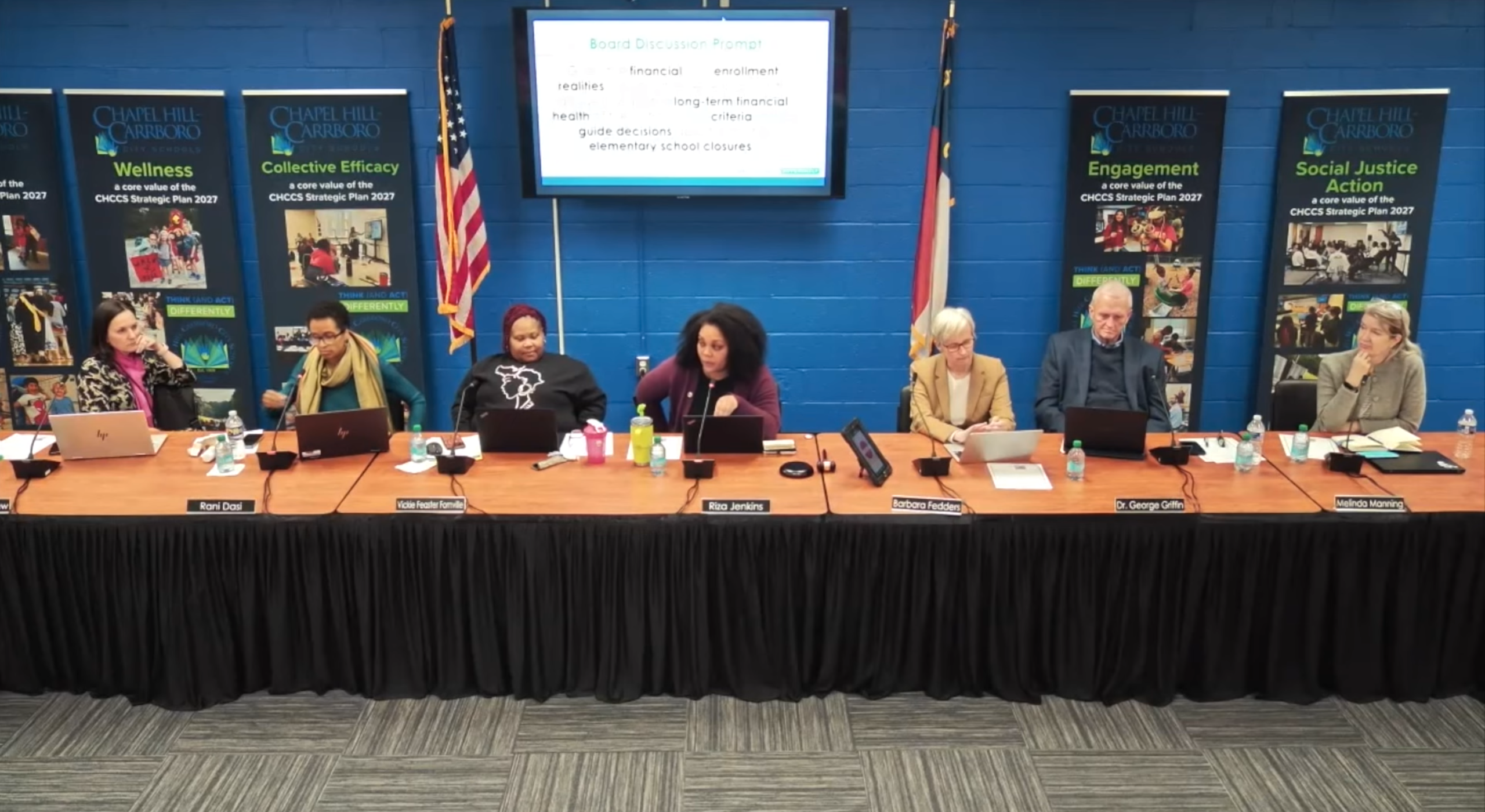An assistant superintendent for Chapel Hill-Carrboro City Schools says the “culture of instruction” is improving for African-American and economically disadvantaged students this year.
“Children need to see and understand that when you have a challenge, that you work through it,” said Magda Parvey, assistant superintendent for Instructional Services for Chapel Hill-Carrboro City Schools. “That’s what smart people do. Things don’t necessarily come easy to you.”
As The News & Observer reported on Sept. 5, Parvey and Schools Superintendent Tom Forcella expressed dismay over disparities in results for end-of-grade and end-of course tests that had just been released.
The federal goal for 60.9 percent of white students in grades 3-through-8 to score a Level 4 or 5 in end-of-grade reading tests had been exceeded by 24.8 percent in CHCCS.
The bad news is that black students in the system did not achieve the federal 33 -percent goal for the same test. Only 31.7 percent scored a Level 4 or 5, and only 29 percent of economically disadvantaged students hit the mark.
Parvey responded by saying that the “culture of instruction” at Chapel Hill-Carrboro Schools needed to change, to address the problem.
Speaking recently with WCHL, Parvey talked more about what that means for the 2014-15 school year. She said the school system will focus on planning.
“High-performing schools that have all students performing well, including students in subgroups – such as our special education students, our students of color – they plan,” said Parvey. “And not only do they plan, they plan using backward design.”
Backward design, she said, involves planning with the outcome as a starting point, and then working back from there.
“First, looking at what will students be able to do as a result of your instruction at the end, and planning backward from that,” said Parvey, “so that your tasks are aligned with the outcome.”
According to Parvey, CHCCS instructors are working to instill a growth mindset in students whose self-image may be holding them back.
She said that some kids get the mistaken impression early in life that tough subjects come easily to more advantaged students. As a result, they may give up, thinking they’re not smart enough.
Parvey said the message needs to get through, that if you exercise your brain, and work through difficult tasks, you will get smarter.
She said that while Common Core standards offer the kind of rigor that put young minds through those paces, the school system must also be ready to pre-teach some “foundational skills” to students who need extra help.
Parvey added that despite recent action by the Republican-led General Assembly to replace Common Core, she doesn’t envision a drastic change that will hinder such efforts.
“I would say that there may be some changes,” said Parvey. “But I believe that they’re going to be minor changes, simply because of all the efforts that have been put into implementing the Common Core.”
Parvey downplayed the recent loss of more than 20 teacher assistants in the district, as a result of cuts in the state budget.
She said that interventionists are still available to help struggling students. Literacy coaches are also there to help teachers close the achievement gap, she added.
“We value our teacher assistants, and the role that they play in classrooms, and helping teachers,” said Parvey. “But we also feel that there’s a lot that happens in the classrooms, through the classroom teacher as the instructional leader that helps to close that gap.”
Half of CHCCS teachers surveyed for a 2014 report said they lacked sufficient instructional time to meet the needs of all students.
Parvey said she agrees.
“That’s fair to say, that we need to provide teachers more time to plan,” said Parvey. “That’s something that I think that they’d be spot-on about.”











